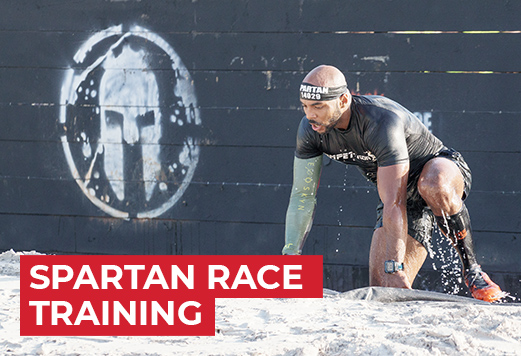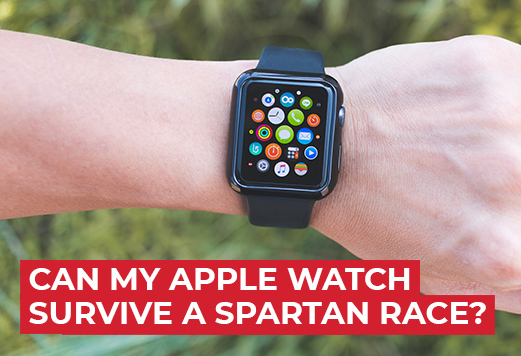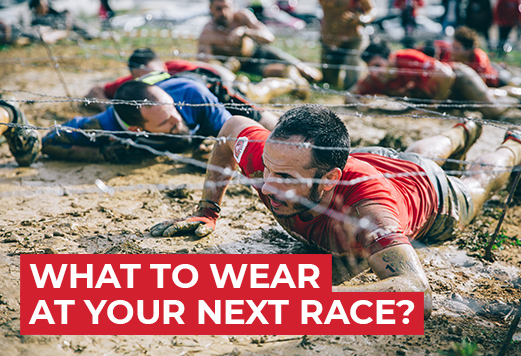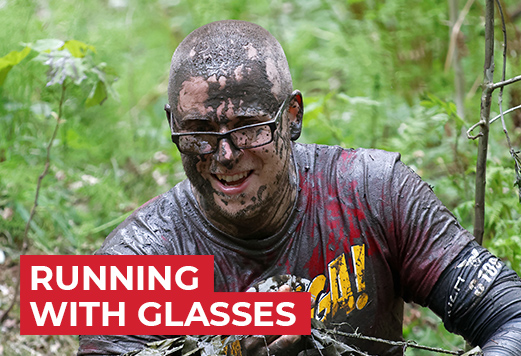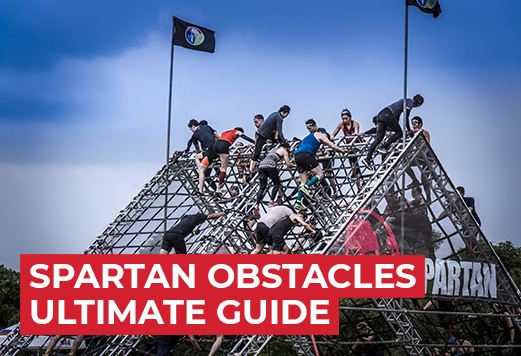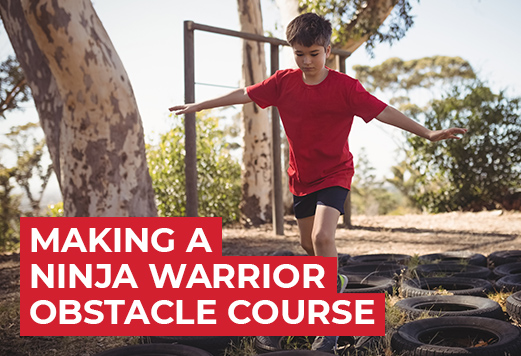You Need to Know What to Eat Before an Obstacle Race
Here's everything you should learn about pre-race nutrition and how to adapt your diet for the night, day or week before your upcoming Spartan Race.
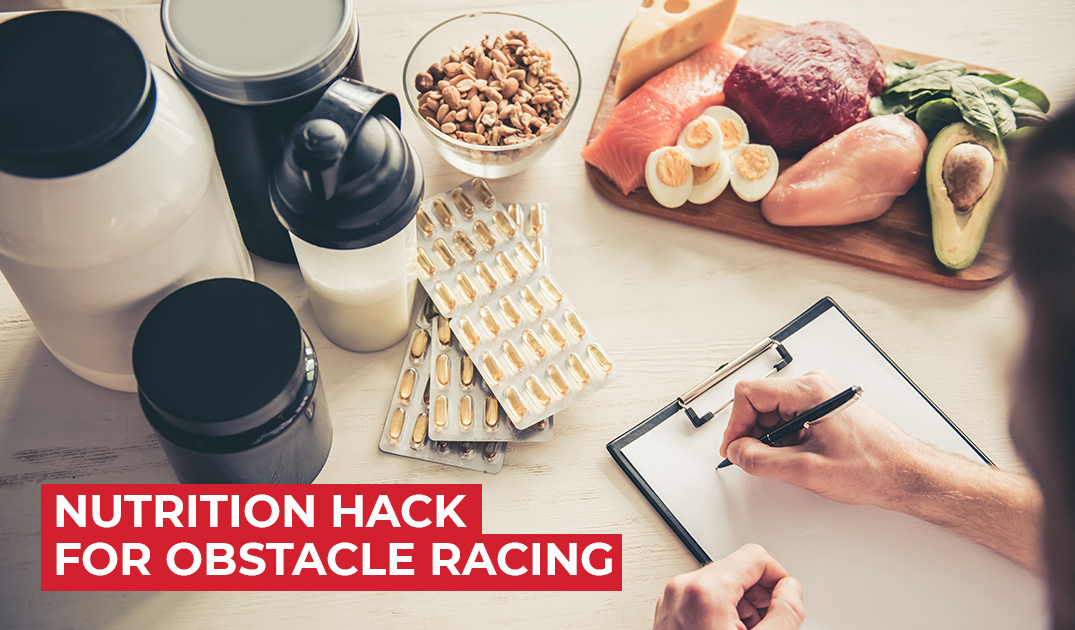

The best food you could eat before an obstacle race contains lots of carbohydrates, such as fresh fruits (especially banana), oatmeal, whole grain bagel, toast, Greek yogurt or low-fat milk. Moreover, you should start eating high-carbs food 48 hours before the race. Here's everything that you need to know about obstacle course race nutrition.
- How does the body produce energy?
- How does the body use energy when you exercise?
- How many carbs do you need?
- How many calories do you burn in an obstacle race?
- How to choose which food to eat before the race?
- Ok carbs, but what about protein?
- What to eat the day before an obstacle race?
- What to eat the night before the race?
- What to eat for breakfast before an obstacle race?
- What should you not eat before a race?
- What to eat during the race?
- What should you eat after the race?
- Conclusion
If you want to know what to wear at an obstacle race and expecting to find a real review from a real runner. Check out my clothing checklist.
Your diet is a vital aspect of fitness, and it even more crucial when preparing for a race. The course will be challenging enough, and you don't need extra obstacles such as fatigue or dehydration. Therefore, you must take your diet seriously and start a pre-race diet 2 days before the event. Through that period your body will stock all the fuel needed.
This fuel is measured in calories, and such energy is created with the macronutrient we eat. Those macronutrients include carbohydrate, protein, and fat. All of them contain the necessary carbs to fuel your body.
All of this nutritionist jargon got me confused at first. Therefore, I decided to research the subject and get a clear view of what I need to eat before a race.
Let's start with the beginning!
How does the body produce energy?
The body produces energy with the carbohydrates we are ingesting. Those carbohydrates are the sugars and starches, coming from the fruits, grains, vegetables and milk products.
The energy needed to function correctly comes from the food you eat. The body digests the food by blending it with acids and enzymes in your stomach. From that process, the sugars and starches (carbohydrate) from the food are broken down into simple sugar (glucose). For example, if you eat a bowl of your favorite pasta, your digestive system will absorb the glucose and deliver it into your bloodstream. Then, the glucose is saved as glycogen (a form of energy storage) in the liver and muscles or used immediately as energy to fuel your body. The glycogen is your most accessible bank of power for our body.
However, carbohydrates are not the exclusive source of energy coming from food. We also use protein and fat, but they are not as practical as the carbohydrates, because the body has to work harder to turn them into fuel.
How does the body use energy when you exercise?
Depending on the intensity of the exercise or the duration, the body as different ways to provide the energy needed.
You have the immediate source of energy (ATP-PC System), the short term (Glycolytic system), and the long term energy storage (Oxidative system).
Also, there are two energy channels, aerobic or anaerobic metabolism. Aerobic metabolism is used to create energy by burning carbohydrates, fats, and proteins in the presence of oxygen. Anaerobic metabolism is consuming carbs in the absence of oxygen, which happens when the lungs can't get enough oxygen into the bloodstream and keep up with the energy needed from your muscles.
Here's what would happen when you start to run:
1. Within the first seconds, your muscles cells have consumed all their immediate source of energy and will need more fuel to continue.
2. After, the first couple meters your body will start digging glucose from the Glycolytic system (short term). This energy bank will get you sprinting 100 meters or jogging 400 meters, which is not enough for a whole Spartan race.
3. This is when the aerobic metabolism is used to turns carbohydrates, fats, and proteins into fuels.
During a race, it's only a matter of seconds before your body will start to rely on carbohydrates. Those carbs will comes from your liver, bloodstream, muscles and digestive tract.
How many carbs do you need?
Many runners will practice carb-loading before the race. Such techniques, ensure that they have the proper amount of fuel stored for the race. If you are planning to be on the course for more than 1h30, you should consider the following advice.
First, it's impossible to charge your body with glycogen in just one huge breakfast, and therefore you must start eating carbs 2 or 3 days before the race.
Consequently, it's recommended that you eat 4 grams of carbs per pound of body weights. For example, if the scale indicates 170, you'll need 680 grams of carbs per day (4x170=680).
However, you shouldn't intake more calories than you usually are. In other words, you should eat more food that contains carbs (pasta, rice) and less that contain fat or protein (meat, butter). You should aim at generating 80% of your calories from carbohydrates throughout that carbo-loading period.
Note: Calories are the unit refer to when calculating the amount of energy consumed by the body
How many calories do you burn in an obstacle race?
The amount of calories you consume during an obstacle race is roughly around 1,000. However, the number can vary up to 3,000 calories, depending on your health, age, and sex, as well as the race distance. For example, the bigger the racer, the harder is to run, and the more fuel is needed.
If you are running at a pace of 10 minutes per mile, you'll burn around 100 calories. Therefore, you can suppose to burn 310 calories, and that just for the running part of a 5k race (3.1 miles). However, you'll need to consider the obstacles and the terrain itself; add 20 obstacles plus the elevation of the course.
I prefer to focus on the duration of the race. For example, if I'm running a Spartan Sprint (3.1 miles), I would expect to stay on the course for 1h30. During an obstacle race such as Spartan or Tough Mudder, you have the potential to burn 700 calories every hour. Accordingly, this 5k race would require 1,050 calories.
On top of that number, you must consider the calories we consume daily just for a body to function correctly without doing intense exercise. According to The Dietary Guidelines for Americans, women usually need 1,600 to 2,400 calories per day, while men require 2,000 to 3,000 calories daily.
Now imagine how much calories athletes need to complete endurance races such as the Spartan Beast. It took me 5h30 to finish my last Spartan Beast, so that's 3,850 calories for the running part only.
It's essential you wisely choose the food you eat before the race because your energy dramatically depends on it.
How to choose which food to eat before the race?
When I've start training, I learned the importance of eating the proper food which provides the right fuel my body needed to keep moving.
I get my carbohydrates from whole grains, fruits, and veggies. I choose the leanest proteins from chicken and turkey, fish, and eggs. Plus, I only eat "healthy" fats from nuts, oil, and fish. However, those rules apply for my daily meal, and I must consider other factors when choosing food to fuel my next race.
For example, fruits contain lots of sugars and starch (carbohydrates), which is good, but they also include lots of fibers, which could lead to stomach trouble during the race. Accordingly, I will choose fruits that are low in fiber, such as bananas. If this option is not available, I will peel the fruit to take out must of the fibers in the skin.
Furthermore, I will consider eating food that I don't usually eat for breakfast, like rice or potatoes (and even white bread).
Before the race, I want digestion-friendly food that contains plenty of carbs.
Ok carbs, but what about protein?
Protein is also an energy source, but you shouldn't rely only on it to create fuel during the race. Proteins are useful during training and on the days before the race, as it will boost your internal energy storage. But when we think about race fuel, protein comes thirds behinds carbohydrate and fat. Even if proteins are essential for producing red blood cells that carry oxygen to your muscles, I prefer to focus mainly on carbs to fuel my body during the race.
The reason is mostly because of our complex body mechanics and the non-optimal process to turn protein into fuel. Creating energy with protein required the system to remove the nitrogen, which needed more water and then increases the dehydration of the body. In my opinion, this could be problematic during a race.
What to eat the day before an obstacle race?
On the day before the race, you should eat food that contains loads of starchy carbohydrates and lean proteins. You can find the carbs in rice (brown preferably), vegetables, wholegrain bread, and pasta. As for the protein, opt for chicken, turkey, fish, and milk.
However, the most important rule when planning your pre-race meal is to eat food that sits well in your stomach and never trying something new.
What to eat the night before the race?
The night before a race, you need to minimize the amount of food you eat and maximize the number of carbs you ingest. Your goal is to go to bed early and get a good night of sleep. You don't want to go to bed with a full belly, which could result in a lack of shut-eye.
I would recommend you eat easy-to-digest food such as brown rice, tortillas, bagel, and oatmeal. When you wake up the next morning, you'll be hungry enough to eat a good breakfast.
Also, stay away for high-fiber foods, since they could cause gastrointestinal trouble and disturb your sleep. Furthermore, forget about the fettuccine alfredo, because you should avoid foods with high level of fat, such as cheese, butter, and creamy sauce. Those high-fat food takes longer to digest, and could cause you severe problems during the race.
If you want to eat pasta, trade the alfredo sauce for tomato sauce.
Should you eat pasta the night before a race?
I always wonder why do runners eat pasta the night before a race. The reason why many runners will have spaghetti before the race, it's because of the perfect combination, between healthy carbs from the pasta and easy-to-digest food.
It even becomes a tradition among runners, to gather the night before the race for a spaghetti dinner.
What to eat for breakfast before an obstacle race?
The breakfast you eat in the morning of the race should contain easily digestible carbs and a few proteins. Besides the food, you must also begin hydrating when you wake up and start sipping on water. You should drink 20 ounces of water before the race.
I would recommend you eat your breakfast 3 hours before the race start, which will give enough time to digest the food and store the energy.
Here are some examples of food to eat on the morning of the race:
- Fresh fruits, especially banana
- Oatmeal
- Whole grain bagel or toast
- Almond or peanut butter
- Greek yogurt or low-fat milk Almonds and walnuts
And you should also consider smoothies with:
- Fruits
- Small fruits (ex: blueberries)
- Protein powder
- Flax or chia seed
- Almond milk (low-fat milk)
- Almond or peanut butter
Whatever you choose to eat, you must have tested it during training. For example, make yourself the same breakfast on the weekend before the race and see how your body react. Go for an easy run, while you make sure you don't feel heavy, and you enough energy for the race.
If the race starts more than 2 or 3 hours after eating, you should eat a small snack after breakfast. Even if you wave start in the afternoon, you should only eat a pre-race lunch, like peanut butter and jelly sandwichs, sports bars, greek yogurt, and fruits. Keep it light even if the hamburgers look delicious, postpone that large meal for after the race. You'll feel better and have more energy by just eating a healthy snack.
Can I drink coffee before a race?
You can drink your usual cup of coffee before the race, but also make sure you drink plenty of water. The mistake would be drinking too much coffee before the race and not enough water. Also, if you are not a coffee drinker, you should stay away from coffee since it could disrupt your digestive system.
As for caffeine, some runners have seen a positive effect on their performance, and they will delay their first intake until they need a boost during the race. Instead of drinking a coffee, they will get their caffeine from energy gels.
Like your breakfast, you shouldn't wait until the morning of the race to experiment with the effect of caffeine on your body. You must have a well-tested plan for the morning of the race.
What should you not eat before a race?
Here are 9 things to avoid before the race.
1. Stay away from sports drinks
Unless you are running a full marathon, you don't need sports drinks, and you should only drink water. Those beverages are filled with sugar, which will create a boost of energy followed by a considerable drop.
2. Don't drink too much liquid
You are not a camel, and running with a full bladder is just useless weight to carry. Make sure to find a toilet before lining up in the starting box.
3. Don’t eat or drink anything new
Did you just discover that healthy breakfast every athlete is eating before a major competition? Try it another time, because you can't afford to upset your stomach before the race. Also, when you arrive at the event, you'll pass in front of various sponsor booths, and some of them might give away free samples. Wait after the race, before tasting that new sports bars.
4. Don't eat high-fiber foods before a run
Eating healthy is a good thing, but some type of food should be avoided before the race. For example, vegetables are a great source of fiber, but those fibers are slow to digest and could lead to gastrointestinal discomfort during the race. Don't expect porta-potty on the course.
5. Don't eat sugary foods
Sugar can be helpful when you are in the middle of a long run, but not during breakfast. Those sweet pastries look delicious, but they are full of empty calories, that will lead to hypoglycemia. This condition is caused by a sudden spike in your blood sugar followed by the pitfall. Leaving you with no energy and a headache.
6. Don't eat fatty food
Even if fat is an excellent source of energy for the body, you should stay away from ultra fatty-food before the race, because fat takes longer to digest. Anything saturated in fat, such as cheese or bacon will make you feel heavy and uncomfortable during the run.
7. Choose well your energy bar
When I participate in a +2 hours obstacle race, such as Spartan Super or Beast, I always carry a couple of power bars in my pocket. But not any kind of power bar. However, I carefully select the ones with a high amount of protein and no refined sugar. Just like sports drinks, many fitness bars contain a load of sugars. If you like to cook and exactly know what your eating, I would recommend making your power bar.
8. Don't overeat dairy products
Before you drink that glass of milk for breakfast, make sure you did it before. You don't want to find out that you have a problem digesting dairy product in the middle of the race.
9. Don't eat spicy food
Spicy food is also a possible gastrointestinal disaster during a race. I would recommend keeping that bowl of delicious chili for after the run.
What to eat during the race?
Even if you follow my advice, and eat properly before the event, you'll need more fuel during the race. Especially if you are on the course for more than an hour.
Don't expect to find food along the course, it very unlikely. Those events have aid stations spread across the course, but they mostly serve only water (sometimes sport drink), and very rarely they give away energy gels or bars. Make sure to check the race details to find out how many stations they have and what they will be serving.
During, my first Spartan Race, I ended up eating wild berries because I showed-up empty hands. It took me 5h30 to complete a Spartan Super (8 miles), and I did most of the course on an empty stomach. I'm never making this mistake again.
What is the best fuel for the race?
After eating wild berries during a Spartan Race, I always carry enough food to fuel my body for the entire race.
Since I like to bring my water in my hydration pack, I also mix it with homemade energy drink (BCAA). Plus, I use the other pockets to carry gels, electrolyte gummies, and energy bars. Because I don't rely on aid stations, I'm sure that I would stay hydrated, and I will get enough fuel to continue the race.
The carbs from these energy gels are almost instantly absorbed by the body. Therefore, my goal is to take around 50 grams of carbs per hour, which create an additional 120 calories to burn. A typical energy gel contains 22 grams of carbs, and I will take 2 to 3 gel per hours.
What should you eat after the race?
You just cross the finish line, your body is tired, and barely have the energy hold the weight of the medal around your neck. At that moment, your body is ready to restore muscle tissues and refill your glycogen reserve.
During this short window of 15 to 30 minutes, you should eat a healthy post-race snack containing around 20 grams of protein and 40 grams of carbs. My favorite post-race snack includes nuts, granola, greek yogurt, banana, and coconut water.
Once, you had your healthy snack, you can head to the food trucks, grab that well-deserved beer and enjoy the post-race festivities.
Conclusion
Proper diet and training are the keys to succeed in your next obstacle race, and therefore nutrition shouldn't be complicated. I have created this pre-race nutrition guide to help you understand what you need to eat before an upcoming obstacle race.
The most important point you need to remember is to focus on stocking the maximum of energy by eating loads of carbs (brown rice, pasta, oatmeal) the day before the race. Eating the right food will ensure that you have enough fuel in the tank to complete the race.
Now, make sure to train hard!
P.S. If you want to know what to wear at an obstacle race and hoping to get genuine advice from a real runner. You should check out this my clothing checklist.
I have hand picked this racing gear because I'd used each item in different obstacle races and mud runs. Plus, I'd confirmed my selection with my fellow OCR runners. With all their insights and my own experience, I've built this list of the most helpful gear to bring at an obstacle race.
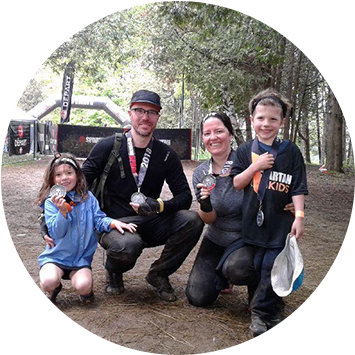
Thank you for reading!
Hi, I'm the Obstacle Ninja, and I will share with you my tips on how to crush it at your next obstacle racing. Also, how to get your little ninja more active with obstacle course. Want to know more about me? Read my story!

Hi, I'm the Obstacle Ninja, and my passion is OCR (obstacle course running).
My idea of the perfect weekend is to run a Spartan Race or Tough Mudder with my family. We love to run in the mud and challenge your self with the obstacle. My kids and I, we love to watch Ninja warrior and train for our next obstacle race or mud run.
I will share with you my tips on how to crush it at your next obstacle racing. Also, how to get your little ninja more active with obstacle course.
Want to know more about me?
Read my story!
Got questions? Contact me!
